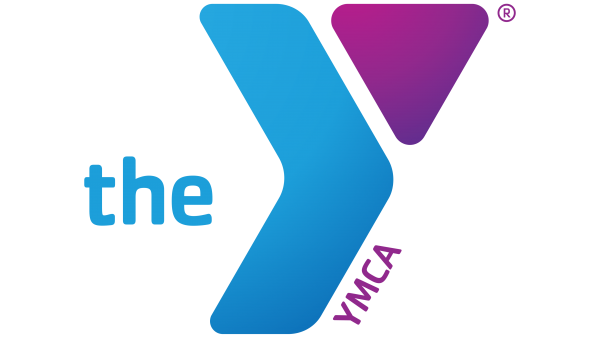By Jennifer Kiilerich
In a game-changing partnership, Vanderbilt Peabody College of education and human development and the YMCA of Middle Tennessee are proving that effective reading interventions can come in all shapes-and ages.
Reading Buddies is a peer-to-peer tutoring initiative spearheaded by Peabody researcher Jeanne Wanzek and Elizabeth Swanson of the University of Texas at Austin. It has run pilot programs at YMCA sites in 69 public schools across Tennessee and Texas since 2023. On the heels of promising initial results, which found that cross-age tutors delivered reading interventions as effectively as adult tutors, the project is entering its third year; and its first as a sustainable and primarily self-run program.
"The YMCA of Middle Tennessee was a natural partner, given their wonderful community involvement locally, and the existing services they provide for after-school care across our public schools," said Wanzek, Currey-Ingram Professor of Special Education.
The YMCA's after-school programs have turned out to be the perfect hub for peer tutoring. Amid a Metro Nashville Public Schools literacy push, the program brings meaningful support to young, struggling readers who may not have the resources or time for private interventions.
EARLY STUDY RESULTS INDICATE READING GROWTH
Wanzek is a co-principal investigator on the Institute of Education Sciences $4 million, five-year study, "A replication study to examine the efficacy of Sound Partners when implemented by peer tutors."
 In the project's first two years, Reading Buddies entered 30 different Davidson County YMCA after-care programs. Each year, five sites served as control groups, five brought in adult tutors (like graduate assistants and teachers), and another five trained fourth and fifth graders on how to tutor first- and second-grade learners. The goal was to work with young, below-grade-level readers three times per week in 20-minute sessions, and to discover whether peer tutors could produce reading gains equivalent to or better than traditional models.
In the project's first two years, Reading Buddies entered 30 different Davidson County YMCA after-care programs. Each year, five sites served as control groups, five brought in adult tutors (like graduate assistants and teachers), and another five trained fourth and fifth graders on how to tutor first- and second-grade learners. The goal was to work with young, below-grade-level readers three times per week in 20-minute sessions, and to discover whether peer tutors could produce reading gains equivalent to or better than traditional models.
Vanderbilt researchers tailored tutoring plans to their nine-to-11-year-old mentors, pulling from a research-based reading program, Sound Partners. The Sound Partners curriculum focuses on phonemic and alphabetic skills, phonemic decoding and assisted oral reading practice with decodable texts.
"It made me feel very happy that I was able to teach him something," said a fifth-grade tutor.
"It made me feel very happy that I was able to teach him something," said one young tutor. "Maybe he can come back and be a fifth grader like me, and he can tutor someone else and just pass it on."
Early data, said YMCA area coordinator James Goff, "was able to show that the students who were tutored by the fourth and fifth graders actually had slightly better results than those tutored by the adults. I think a lot of that was being able to stick to their script a little bit better and not try to teach it their own way." Gains were found in the areas of oral reading fluency, letter-word ID and sight-word reading.
 Additionally, the tutors themselves demonstrated improved reading abilities. Goff reported that children have enjoyed the program, with the older kids finding it especially rewarding to take on leadership roles. A fifth-grade tutor summed up their time with Reading Buddies, saying, "It was a good experience. It's fun to teach kids and help them learn."
Additionally, the tutors themselves demonstrated improved reading abilities. Goff reported that children have enjoyed the program, with the older kids finding it especially rewarding to take on leadership roles. A fifth-grade tutor summed up their time with Reading Buddies, saying, "It was a good experience. It's fun to teach kids and help them learn."
And Claire McKeever-Burgett, whose son was a tutor in the program, noted that "being able to tutor and help a younger classmate made him feel proud and important in the best of ways, as he would come home boasting about what they learned together and what he was able to teach."
SUCCESS FOR THE FUTURE
The success of Reading Buddies can be partly attributed to its ability to build upon relationships in addition to academics. "We teach the tutors how to engage with their younger peers," explained Wanzek. "Like how to encourage them, what to say when they make a mistake." Plus, the team has responded in real time to student feedback, adjusting lessons from 30 minutes to 20 minutes, and allowing for extra transition and "get-to-know-you" time between tutors and tutees.
"One of our goals is to expand key aspects of the program, and to really support MNPS and their mission to increase the literacy skills of their students," said Goff. Since the program demands minimal active work or additional staffing once student tutors are trained, it keeps costs down for families. "The older tutors know right where their logs are, they know where their lesson books are. They grab it all and sit down, and the routine has been really great," noted Goff.
The study's principal investigator is Elizabeth Swanson of UT Austin, and alongside Jeanne Wanzek, additional co-principal investigators include Sharon Vaughn and Greg Roberts of UT Austin. Vanderbilt research associate Karin Sandmel has also assisted in overseeing the project.
Jeanne Wanzek is an expert in reading interventions and a leading research professor in Vanderbilt Peabody College's Department of Special Education, recognized among the nation's top special education programs.






